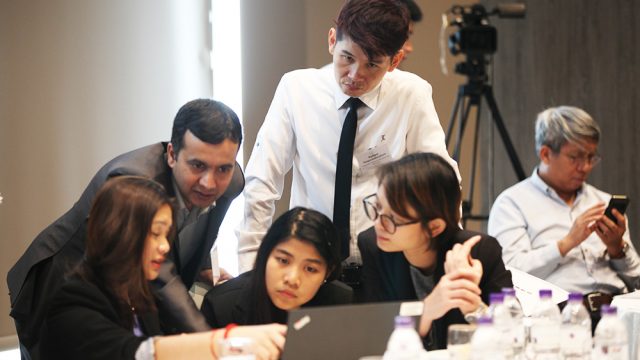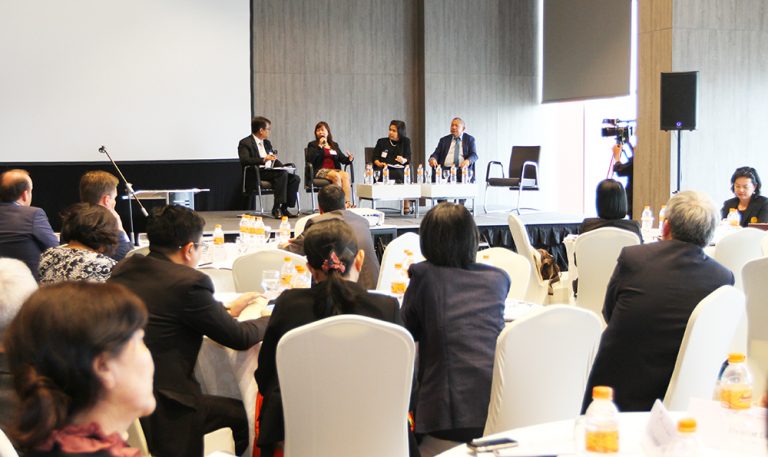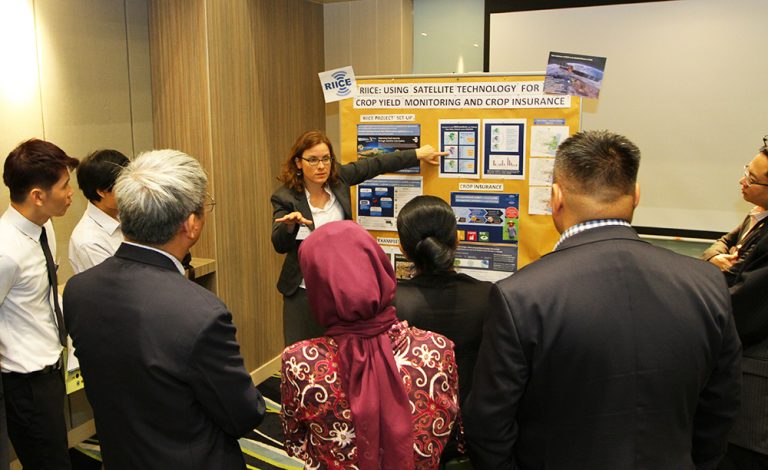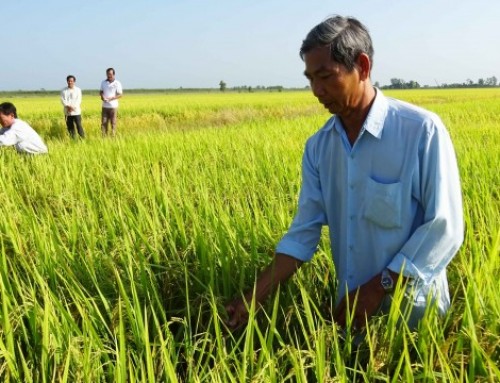Public and private partners explore solutions to reduce financial risks of climate change

GIZ & Swiss Re workshop with Asian government representatives in Jakarta
More than 90 representatives from eleven Asian countries participated in an executive consultation forum and capacity building seminar in Indonesia to learn and share their experiences on mechanisms how to deal with financial risks resulting from climate change.

Mr. Suriyan Vichitlekarn (left) – Regional Project Director of BRIA (Better Rice Initiative Asia) moderates a session with Dr. Marqueza Reyes (ASEAN DRFIP), Dr. Aryusri Kumbunlue, Thai Office for Insurance Commission, Norman Cajucom (PCIC, Philippines) (from left).
The event was organized by the “Strategic Alliance on Climate Risk Transfer Solutions” (Strategic Alliance) which is a Public-Private-Partnership project between GIZ and the international reinsurer Swiss Re with the objective to improve access to smart climate risk transfer solutions at sovereign and sub- sovereign level for selected Asian and African governments. It was the first of its kind in the Asian region organized by the two partners and took place between 17 and 21 October in Jakarta.
Asia is one of the most disaster-prone areas in the world has experienced the highest number of natural disasters worldwide in the last 115 years. Since these damages have strong peaks over the years resulting in large economic, social and financial losses, the question arises how states can financially deal with those very strong disasters.
In his keynote presentation Dr. Alexander Jaeger, the Project leader of the Strategic Alliance at GIZ, emphasized that the financial impact of climate change represents a growing financial burden for societies across Asia and that climate risk transfer solutions such as insurance is one promising option how governments can address this worrying situation.
The overall objective of the event, therefore, was to enhance the understanding of government officials on sovereign risk financing and risk transfer mechanisms with regard to climate change risks as well as to increase their technical capacities. Participants represented a wide variety of government institutions (e.g. Ministry of Agriculture and Ministry of Finance), the private sector (e.g. insurance companies) and development partners (e.g. ASEAN and the World Bank), which further increased learning and knowledge sharing.
Members of ASEAN Sustainable Agrifood Systems (ASEAN SAS), Better Rice Initiative Asia (BRIA) and Remote Sensing-based Information and Insurance for Crops in Emerging Economies (RIICE) teams supported the organization and facilitation of the workshop as their field of work and the partners they cooperate with are strongly linked with the participating audience.
Mr. Suriyan Vichitlekarn, Regional Project Director of BRIA moderated the whole event. Ms. Susan Gille, Project Manager of RIICE facilitated a group work session on Developing a Sovereign Climate Risk Financing Strategy in which country groups with participants from different government institutions jointly work on their specific country issues, looked at existing gaps and developed ideas how to strengthen the disaster risk insurance framework in their countries.
The activities of the RIICE project complement the goal of the “Strategic Alliance on Sovereign Climate Risk Transfer’s”: Providing governments with smart climate risk transfer solutions. RIICE can play an important part in an integrated disaster risk management approach, consisting of risk identification, assessment, prevention and mitigation and adaptation (risk transfer) by providing the underlying technological backbone. For the future, RIICE intends to strengthen its collaboration with the “Strategic Alliance on Sovereign Climate Risk Transfer” and Swiss Re in Southeast Asia.
Further information:

Ms. Susan Gille, RIICE Project Manager, presents in a market place session on regional activities and international support on disaster risk insurance solutions.
By Benedikt Lemnitzer, Remote Sensing-based Information and Insurance for Crops in Emerging Economies (RIICE)





